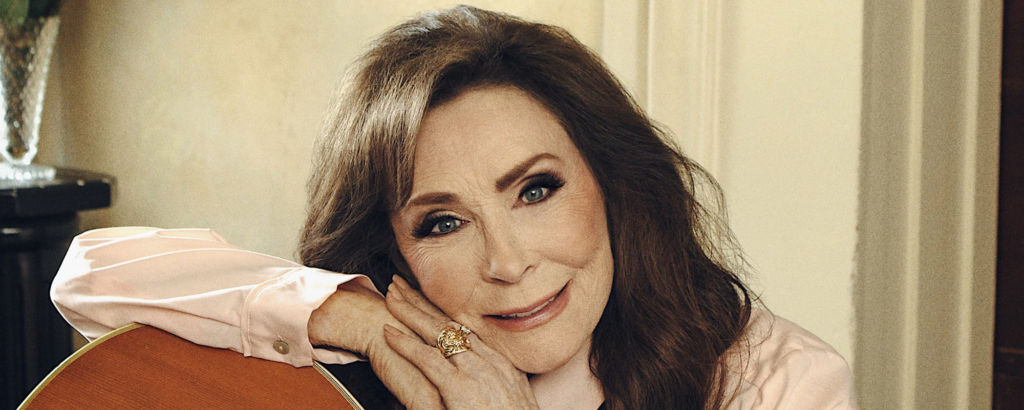
Country music legend Loretta Lynn died on Tuesday, Oct. 4, in her Hurrican Mills, Tennessee home at the age of 90.
Born in Butcher Hollow, Lynn was known as Kentucky’s coal miner’s daughter for her frank lyrics and pride in Appalachia. In a statement sent to the Associated Press, Lynn’s family said she died in her Tennessee home, surrounded by loved ones.
Lynn had four children before her career as a country music artist began in the 1960s. Lynn was not only a pioneer for women in the music industry, but she also challenged norms with lyrics about sex, love, unfaithful husbands, and birth control, pushing the boundaries of what could and couldn’t be aired on the radio.
Her most popular tracks include “Coal Miner’s Daughter,” “You Ain’t Woman Enough,” “The Pill,” and “You’re Looking at Country.”
Lynn earned numerous awards and honors in her lifetime for the music she wrote and sang. She was the first woman ever named entertainer of the year, first by the Country Music Association in 1972 and then by the Academy of Country Music in 1975. The Academy of Country Music selected Lynn as the artist of the decade for the 1970s, and she was inducted into the Country Music Hall of Fame in 1988.

“The story of Loretta Lynn’s life is unlike any other, yet she drew from that story a body of work that resonates with people who might never fully understand her bleak and remote childhood, her hardscrabble early days, or her adventures as a famous and beloved celebrity. In a music business that is often concerned with aspiration and fantasy, Loretta insisted on sharing her own brash and brave truth.”
—Kyle Young, CEO
Country Music Hall of Fame and Museum
Beginnings in Kentucky
Loretta Lynn’s life story reads more like fiction than fact. A poorly educated woman from the coal-mining hills of Kentucky, married at age fifteen and a mother at sixteen, she became one of country music’s most popular performers and broke ground for numerous female singers who followed her.
By telling her own truths, and by writing about her experiences with a perspective and voice unlike any other Southern storyteller, Loretta Lynn become an American hero and a country music standard-bearer. She was born Loretta Webb in a one-room log cabin and was the second of eight children. Her father was a coal miner in the rural coal town of Butcher Holler.
At fifteen, she attended a pie social, bringing a pie she had baked using salt instead of sugar. The highest bidder not only won the pie but also got to meet the girl who had baked it. Doolittle “Mooney” Lynn had just returned home from the army. A month after they had first met, and three months short of her sixteenth birthday, Loretta and Mooney married.
A year later, the couple moved to the state of Washington, after Mooney had heard job opportunities were better there. It was the first time Loretta had been away from home. Mooney found work while Loretta, at age sixteen, became pregnant with their first child. By the time she was twenty-two, she had four children.
Loretta had grown up listening to country music and often sang around the house. Her favorite singer was Kitty Wells. Mooney bought her a $17 Sears guitar so she could play as she sang. Later he helped arrange an engagement at the local Grange hall, bragging that his wife could sing better than anyone except Kitty Wells. Soon Loretta was performing with a local band and within months formed a band of her own.
Loretta Lynn Begins Recording
Lynn came to the attention of Zero Records, a small firm in nearby Vancouver, British Columbia, Canada. The label signed her in February 1960 and sent her to Los Angeles to cut four songs. After the session, she and Mooney stayed until the records were pressed and then mailed them to country radio stations. Loretta and Mooney then hit the road for Nashville, stopping at stations along the way to promote her rendition of “I’m a Honky Tonk Girl.” The record began getting airplay and reached #14 on the country music charts in 1960. On the strength of this hit Lynn gained a first appearance on the Grand Ole Opry, on September 17, 1960.
One of Lynn’s first stops in Music City was the office of the Wilburn Brothers. Teddy and Doyle Wilburn were a top country vocal duo whose enterprises included a music publishing company, a booking agency, a syndicated television program, and a touring show. Recognizing her talent, Doyle Wilburn made her a part of the Wilburns’ road show and a regular on their television series. He eventually secured Lynn’s release from Zero Records and persuaded Decca Records, for which the Wilburns recorded, to sign her. Later, Lynn’s desire to assume full control of her career led to conflicts with the Wilburns. A lawsuit settled matters, and eventually they resumed their friendship.
Two years after “I’m a Honky Tonk Girl,” Lynn began scoring additional hits, including “Success,” “Before I’m Over You,” and “Blue Kentucky Girl.” But it wasn’t until she wrote and recorded “You Ain’t Woman Enough” and “Don’t Come Home a’Drinkin’ (with Lovin’ on Your Mind)” that Lynn’s music took a new direction. Her songs became more assertive, and the country girl from the Kentucky hills, who was raising a family of six, spoke more boldly and forcefully than many would have expected. Still, the humor of songs such as “Fist City” and “Your Squaw Is on the Warpath” kept her from alienating her audience.
Lynn was the Country Music Association’s Female Vocalist of the Year in 1967, 1972, and 1973. What’s more, she began appearing on television variety programs and talk shows that had rarely featured country music performers because of her natural wit and vivacity. By the end of the 1960s, Lynn’s brother, Jay Lee Webb, and her sisters Peggy Sue and Crystal Gayle also had become country recording artists.


